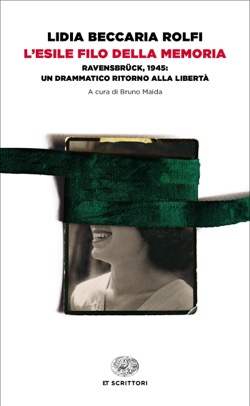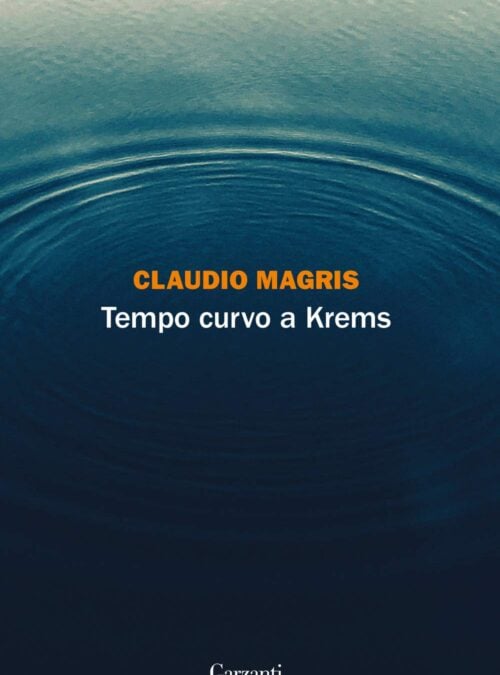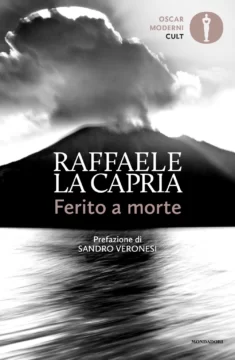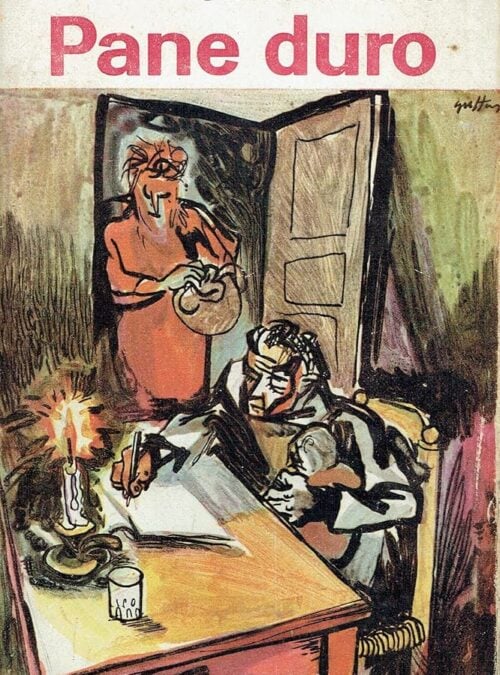L’esilo filo della memoria. Ravensbrück, 1945: un drammatico ritorno alla libertà

A book I’d like to translate
Every month newitalianbooks asks a translator to suggest an Italian book that has not yet been published in his or her language. This month, Jeanne Bonner, who translates from Italian, presents :
Lidia Beccaria Rolfi
L’esile filo della memoria. Ravensbrück, 1945: un drammatico ritorno alla libertà
Turin, Einaudi, 1996
Many books by Jewish and political prisoners of the Nazis have been written and appreciated – in Italian as well as other languages — but the most celebrated are almost always penned by men.
What that means is books by women who survived Nazi imprisonment because they were Jewish or part of the Resistance often remain at the margins of discussions on survivor literature and scholars say they often fall out of print and aren’t translated into other languages where they might gain a much larger audience.
Lidia Beccaria Rolfi’s L’esile filo della memoria. Ravensbrück, 1945: un drammatico ritorno alla libertà, is a beautifully written work of nonfiction that chronicles the author’s experiences as a political prisoner at Ravensbrück, the notorious women’s prison the Nazis built 50 miles north of Berlin.
Gender plays a role in her account, which is notable for beginning not with her capture or initial imprisonment but rather with liberation in 1945. As such, it tells the story of her long journey home, not unlike Primo Levi’s La Tregua (the American translation is called “The Reawakening”). But even though the specter of the Nazis has receded, Rolfi must remain contend with the specter of sexual assault as she slowly makes her way back home to Mondovi, in the Piedmont region of Italy. At one point, she is being guarded by American soldiers who bring her and two Jewish girls to an abandoned concentration camp where they can sleep for the night. But they won’t allow Rolfi and the girls to circulate freely for fear of predatory soldiers of various nationalities. Rolfi writes for some men at war, any kind of woman will do for a quick conquest, “even the skeletal ones, even the little girls.”
Organized primarily in diary format, the book is a fascinating account of the underexplored period of repatriation for thousands of Europeans who were imprisoned during World War II and managed to survive. Liberation for Rolfi, like many others, meant the brutal nightmare of the Nazi era was over but the long slog toward home had only begun, and it required traversing a war-torn continent starved of resources and often hope.
Rolfi had a wonderful eye for details, and included moments of delight amid great despair. At one point while she is lodging with other liberated prisoners, she writes that a cursing competition breaks out among a group of Italian soldiers, and Rolfi notes, with satisfaction, that “naturally, the Tuscan won.”
Nearly 80 years after the events described, her book continues to astonish: How she managed to survive the journey home – after surviving years under Nazi imprisonment; how she was often disbelieved by those who heard about her travails; how, as a woman who had fought with the Partisans, she had to battle for jobs and respect after the war.
This book combines two critical elements: a compelling story told in gorgeous prose. What I wouldn’t do to bring this book to English-speaking readers!
Jeanne Bonner is a writer, editor and literary translator. Her translation of Edith Bruck’s first short story collection, This Darkness Will Never End, will be published in 2025 by Paul Dry Books. As a part-time literary translator, she is particularly interested in emerging women writers and works by women writers that have been overlooked. She has translated work by Francesca Marzia Esposito, Irene Chias, Grazia Versani and Francesca Scotti.










